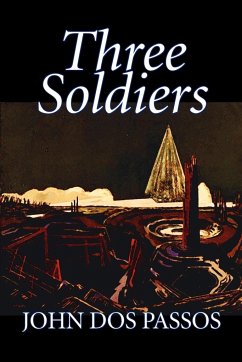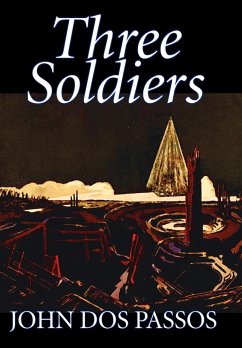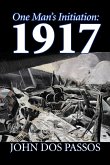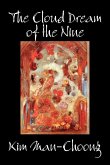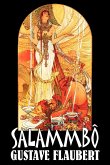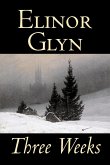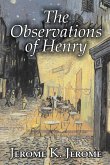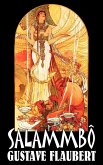H.L. Mencken, then practising primarily as an American literary critic, praised the book in the pages of The Smart Set: "Until Three Soldiers is forgotten and fancy achieves its inevitable victory over fact, no war story can be written in the United States without challenging comparison with it--and no story that is less meticulously true will stand up to it. At one blast it disposed of oceans of romance and blather. It changed the whole tone of American opinion about the war; it even changed the recollections of actual veterans of the war. They saw, no doubt, substantially what Dos Passos saw, but it took his bold realism to disentangle their recollections from the prevailing buncombe and sentimentality." "Don't you know better than to sleep in your O.D. shirt? Take it off." "Yes, sir." "What's your name?" The man looked up, blinking, too dazed to speak. "Don't know your own name, eh?" said the officer, glaring at the man savagely, using his curt voice like a whip. -- "Quick, take off yer shirt and pants and get back to bed." The Officer of the Day moved on, flashing his light to one side and the other in his midnight inspection of the barracks. Intense blackness again, and the sound of men breathing deeply in sleep, of men snoring. As he went to sleep Fuselli could hear the man beside him swearing, monotonously, in an even whisper, pausing now and then to think of new filth, of new combinations of words, swearing away his helpless anger, soothing himself to sleep by the monotonous reiteration of his swearing. A little later Fuselli woke with a choked nightmare cry. He had dreamed that he had smashed the O.D. in the jaw and had broken out of the jug and was running, breathless, stumbling, falling, while the company on guard chased him down an avenue lined with little dried-up saplings, gaining on him, while with voices metallic as the clicking of rifle triggers officers shouted orders, so that he was certain to be caught, certain to be shot. He shook himself all over, shaking off the nightmare as a dog shakes off water, and went back to sleep again, snuggling into his blankets.
Hinweis: Dieser Artikel kann nur an eine deutsche Lieferadresse ausgeliefert werden.
Hinweis: Dieser Artikel kann nur an eine deutsche Lieferadresse ausgeliefert werden.

